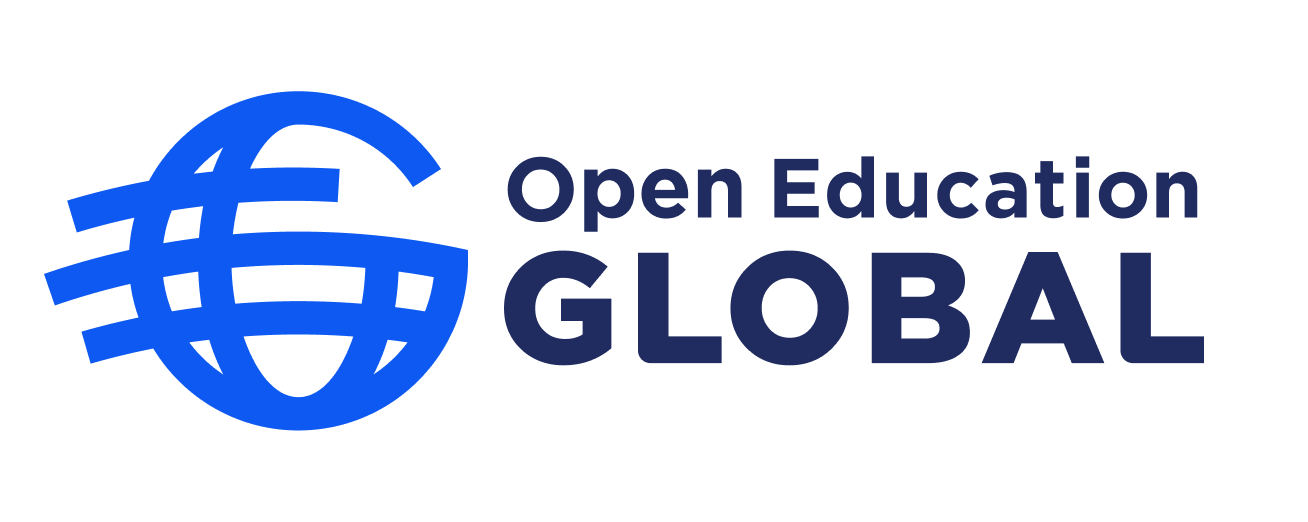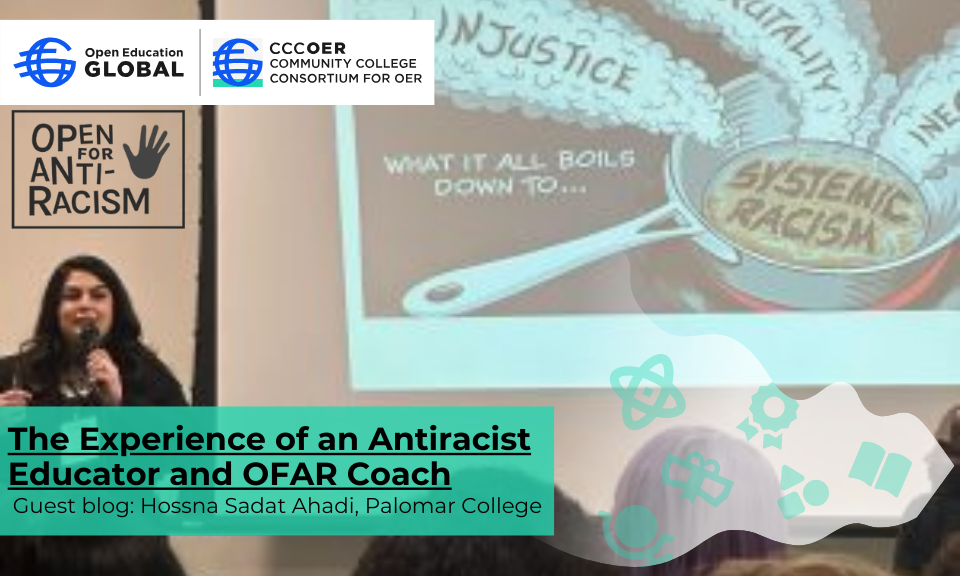The Open for Antiracism (OFAR) program has been led by CCCOER since 2020. This guest article is by Hossna Sadat Ahadi, an Associate Professor in Counseling at Palomar College.

Since its inception, Open for Antiracism (OFAR) has supported faculty across California Community Colleges to transform their curriculum, pedagogy, and praxis by centering antiracism. As a faculty member of OFAR’s inaugural cohort in 2020, and now in the role of a coach, I continue to learn from other faculty colleagues on ways to dismantle racism, inequities, and injustices for students in community college and beyond.
Joining OFAR four years ago was critical for me to begin reflecting and transforming both my classes and counseling sessions. OFAR is more than just training faculty to become critically conscious of systemic barriers and perpetual inequities—but about eradicating colonial and hegemonic policies and practices in all spaces on our college campuses, beginning with our classroom instruction. What I learned throughout the two-semester program was about advocating for inclusivity and overtly countering practices that perpetuated racism and hegemony. After all, our purpose as educators is to advocate for liberation and social justice for students and communities who have been historically marginalized and minoritized throughout the educational system.
I have been counseling and teaching Rising Scholars at Palomar College for several years now. My role at the college is to support the reintegration success of formerly incarcerated students. In 2020, as part of my OFAR action plan, I collected both qualitative and quantitative data in my classes, which allowed me to learn about the lived experiences and barriers my students encounter while attending community college. In addition, I became a zero textbook cost instructor and soon realized my student enrollment increased, as many were financial aid or dream act recipients. Alleviating financial barriers is critically important to increase possibilities of students thriving without having to pay high-cost textbooks. I also implemented pronoun usage in my classroom, counseling sessions, and meeting spaces. I realized there were students in my classroom who identified as non-binary and non-conforming and they felt an instant belonging for this practice. I also elevated multi-racial and multi-ethnic scholars in my curriculum and wanted to highlight both racial diversity and representation for students to see their communities as well. I co-created community agreements with my students and established open pedagogy. While community agreements establish a basis of how everyone will interact with one another throughout the course, open pedagogy is a practice that involves students as creators to develop understanding of the antiracism curriculum.
Being a coach for OFAR has allowed me to learn so much from faculty colleagues throughout California Community Colleges and across a wide range of disciplines. With many conversations, we have been able to research and reflect how certain disciplines and topics in curriculum can include historical understanding of racial inequities, inequalities, and injustices. For example, one professor who teaches music included a lesson about the Chitlin Circuit during the period of Jim Crow segregation. While another engineering professor included a lesson about the building of bridges as it related to racial segregation. Having team meetings allowed us to share and learn various perspectives and ways of incorporating antiracism in our teaching and praxis. When we action social justice in our classrooms, we provide equity and liberation for the next generation to thrive and lead. In the words profoundly stated by Tupac Amaru Shakur, “I’m not saying I’m gonna change the world, but I guarantee that I will spark the brain that will change the world”.

About Dr. Hossna Sadat Ahadi
Dr. Hossna Sadat Ahadi (pronouns she/her/ella) is an Associate Professor in Counseling at Palomar College. She obtained her dual bachelor’s degree in history of the near east and political science from UCSD. She earned a master’s degree in education — with emphasis on multicultural counseling and social justice and an educational doctorate in leadership from SDSU. She also received a second doctorate in philosophy in education for social justice from the USD. Dr. Sadat Ahadi is a national and statewide award winner for her work and leadership involving antiracism and decolonization in education. She continues to research, publish, and provide ongoing training regarding antiracism, decolonization, disability justice, and racial equity in education.

